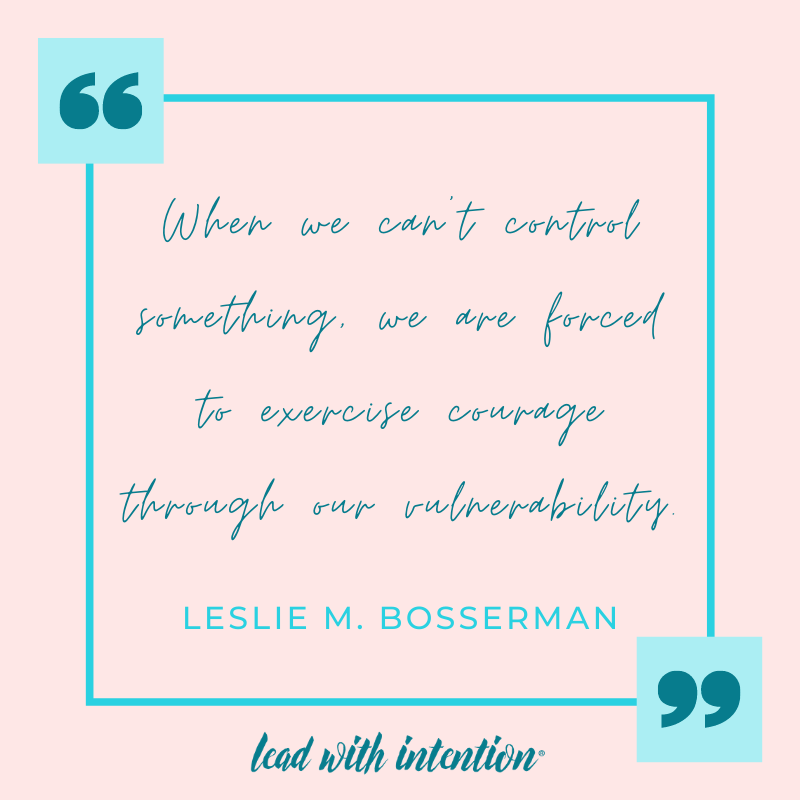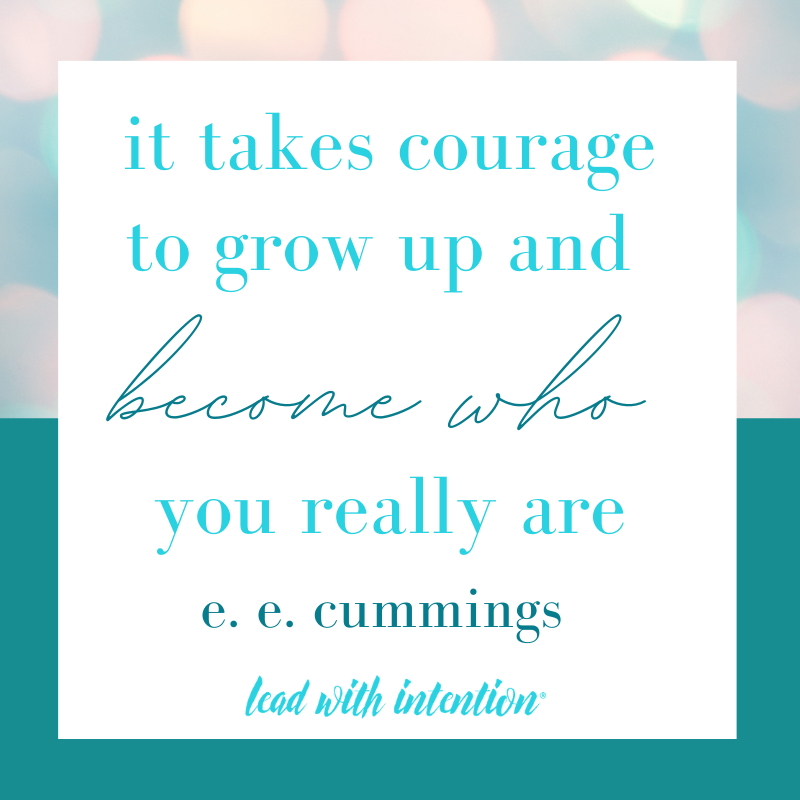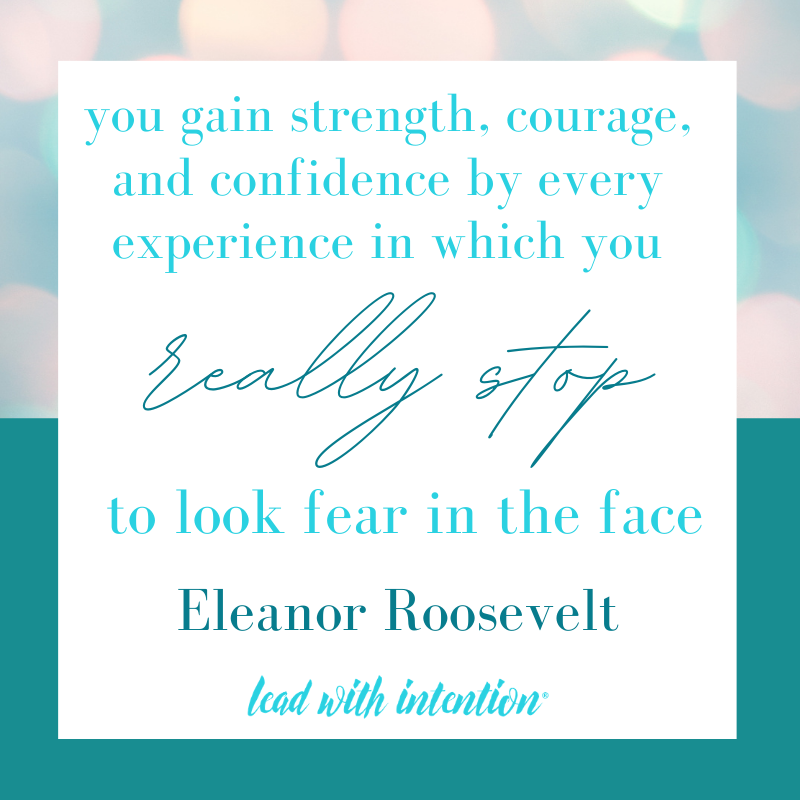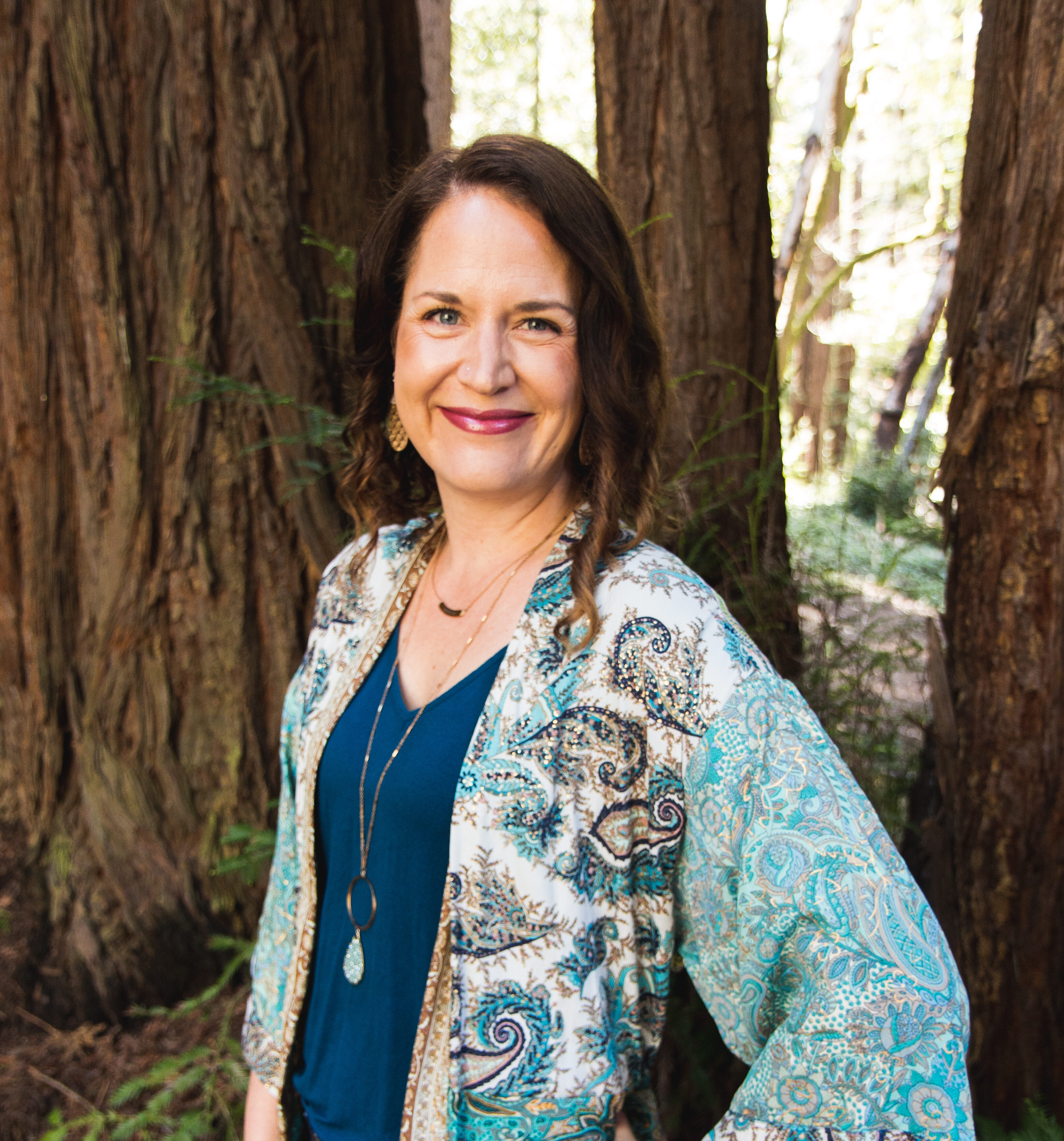It was mid-summer in Sacramento and the California temperatures soared in the triple digits. Countless hours had been invested to bring us exactly to this moment and the excitement was palpable!
At 36 weeks pregnant with my first baby, I bravely stepped on to the stage and into the flood lights looking out at over 2,000 people waiting expectantly. After months of planning and organizing the logistics, today was the day it all came together. And it was my job to kick it off!
While no one has ever accused me of being shy, I had also never addressed an audience so large! Smiling, I imagined that the mic I gripped tightly held all my courage as I spoke: “Welcome to TEDxSacramento.” The swell of applause was overwhelming after only sharing those opening words, and I instantly felt vulnerable and powerful at the same time!

Maybe you’ve had an experience where you’ve felt something similar: A time when you allowed yourself to take a risk or step out into the unknown and had to muster up more courage than you knew you had.
What was the effect?
How did it change you?
Who did you become?

In The Arena
We kicked the new year off by defining your vision and really getting clear on what you want and need most now. This month, we’re taking it a level deeper and asking you to dig into areas where you can have more courage because you’re willing to step out and be vulnerable.
In her book, Daring Greatly: How the Courage to Be Vulnerable Transforms the Way We Live, Love, Parent, and Lead, Brené Brown quotes a speech that Teddy Roosevelt gave in 1910 where he said:
“It is not the critic who counts; not the man who points out how the strong man stumbles, or where the doer of deeds could have done them better. The credit belongs to the man who is actually in the arena, whose face is marred by dust and sweat and blood; who strives valiantly; who errs, who comes short again and again, because there is no effort without error and shortcoming; but who does actually strive to do the deeds; who knows great enthusiasms, the great devotions; who spends himself in a worthy cause; who at the best knows in the end the triumph of high achievement, and who at the worst, if he fails, at least fails while daring greatly.”
In order to begin activating your vision, you have to be in the arena. You must step out and start.
Often there are so many obstacles that seemingly block our path. Self-imposed or societally forced limitations. Expectations (from others and ourselves). Excuses. Fears. Doubts.
Take a moment and consider what’s preventing you from making progress now.
Are you already in the arena or do you need a nudge (or a hand)?
When and where are you most vulnerable?
How courageous are you feeling now?
Feeling In Control
There will always be obstacles that get in the way of activating your ideas. Internal and external struggles you face as you navigate uncertainty and deal with misaligned expectations.
Financial and emotional security, health and wellness, the political climate, business operations, not knowing what will happen next…
With a list that keeps growing, we often feel like there’s little we can trust or rely on as certain.
That’s where courage kicks in!

When we can’t control something, we are forced to exercise courage through our vulnerability.
Consider your locus of control – a fancy psych term for how in control you feel internally compared to everything that’s happening around you externally.
If you have a strong internal locus of control, you tend to believe that the events and experiences of your life are a direct result of your actions (what you can control).
Alternatively, if you lean toward having a stronger external locus of control, you feel more at the mercy of environmental factors and tend to blame circumstances or other people for what happens.
This meta-concept of locus of control is directly connected to research on mindset and how your thoughts about HOW you think impact your actions. Those with a Growth Mindset will typically feel more internally-driven and in control of their lives as the subject of their story; while those with a Fixed Mindset act more like an object that is impacted by their external environment.
Let’s take an average day in the life of a busy, working parent for example:
You’ve had a busy day at home, with your young kids while juggling pressing work deadlines. After folding what feels like your tenth load of laundry and setting the basket on the couch, your three-year-old runs into the room, hugging you with the force of love that only a rambunctious three-year-old can! Losing your balance for a moment, you bump the laundry basket and the hour of sorting and folding talent is now in an upheaval on the floor!
What do you do?
If you were reacting from an external locus of control, you might say something like “Look this mess! You need to be more careful!” to your three-year-old in frustration. Even if either of you didn’t mean to knock over the laundry basket, this kind of blaming attribution takes away responsibility from you and projects it on to circumstances outside your control (a powerful hug!)
If you were responding from an internal locus of control, you might say “Wow, that’s a lot of laundry on the floor. Let’s pick it up together and put the basket on the ground this time.” This kind of intentional response acknowledges the situation, while creating a shared solution and a course of action for the future to avoid crazy laundry mistakes.
In both circumstances, the action is the same (laundry all over the floor), but the response is dramatically different. In the latter example, the parent with an internal locus of control doesn’t take their frustration out on the child that simply wanted a hug. Rather, they use the opportunity to teach a lesson on resilience, collaboration, and problem-solving for the future.

It takes courage to be vulnerable, rather than prove you are right or not the one to blame.
Now you may be thinking “yeah, but that’s just laundry!” and you’re right. But how often are triggering issues often so ordinary?
You’re late for work and stuck in traffic.
You spill salad dressing on your shirt right before a big meeting.
You run out of coffee creamer after just going to the store.
These everyday issues steal our time and energy and often are completely unintentional.
While you’re staring at the metaphorical laundry all over the floor, you have a choice in HOW you will respond.
Don’t let these moments reduce you to someone who feels out of control and helpless.
Instead, Pause.
Breathe. Calm your mind.
Then consider what outcome you desire and what you can do to make it happen.
Step into the arena as you find your way forward.

What Defines Your Courage?
Courage for me is showing up daily and living my life on purpose.
It’s not letting my doubts and fears steal the spotlight when there are so many more exciting and important things to focus on.
Too often, we hide behind what others think we should do and who we should be. We sell out our values and dreams for the safer or more socially appropriate option. We shrink and hide, wondering what it would be like if we were braver.
Courage requires you to be both vulnerable AND bold! To act based on your values because you’re willing to live them out loud.
How you are showing up now?
Where are you placing your control?
What do you need to do to step into the arena?




